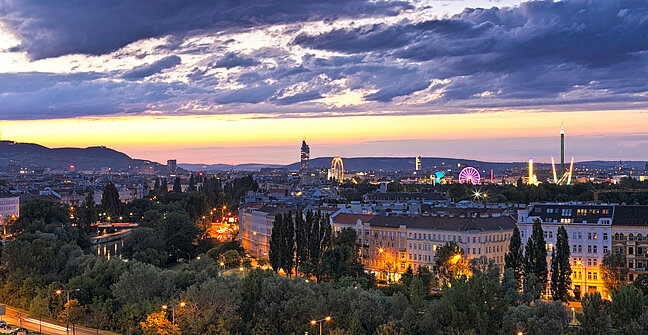
Typical Austrian Expressions and their Meaning
Being polite is important, using greetings such as Grüß Gott or the more familiar Servus, in shops or, in some rural areas, to people passing by on the street.
Typical Austrian expressions and their meaning
Jause is a snack, or a (usually cold) meal served in between, or instead of, a standard lunch or dinner.
Rechts stehen, links gehen: On escalators, it is good etiquette to stand on the right, and let people walk up and down on the left.
In business or social meetings, you will often find yourself gathering at a café or sipping a Weißer Spritzer (white wine with sparkling water) in the evening.
In the summer, Austrian cities offer Freiluftkinos or open-air cinemas, in public spaces such as parks, museum courtyards, or on rooftops. In some cases, they are for free, others need to be booked in advance and will charge similar rates to indoor cinemas.
Schanigarten is an Austro-Bavarian dialect term for outdoor restaurant and bar
Many winegrowers invite you to enjoy wine and culinary delights in their Buschenschank or wine tavern.
Austrian attitude to life
What is it about Austria that makes people want to move here?
With its rural and urban attractions, vibrant culture, extensive green spaces and dependable infrastructure, Austria has seduced more than one visitor into calling this country home. In 2019, the capital, Vienna, headed the annual Mercer Quality of Living survey - for the 10th year in a row and in 2024 Vienna was ranked number 2 in Monocle’s Quality of Life Survey and number 2 in the Global Liveability Index of The Economist. Austria is perhaps best known for its breathtaking mountain vistas and ski slopes. There are lots of famous people throughout history who called Vienna home, such as composers Haydn, Mozart and Beethoven; ground-breaking artists such as Gustav Klimt and Egon Schiele, and, of course, Sigmund Freud, considered the father of psychoanalysis.
But, in addition to its rich culture and geographic diversity, Austria offers a unique emphasis on the quality of life. Relaxing, languishing in cafés alone with a newspaper, or gathering with friends over a glass of wine; regenerating particularly in the great outdoors; and an emphasis on good quality, often locally sourced food, are all built into the fabric of Austrian life. Austria is one of the most stable democracies in Europe and has emerged from the devastation of World War II as one of Europe’s most thriving economies. The quality of life survey by Monocle 2023 and the Liveability Index 2024 by The Economist also put Vienna in first place in terms of quality of life.
Sights & Specialties
Quality of life in Austria
Austria scores very well in many areas of quality of life. Austria is rated above average in the areas of healthcare, education system, food costs, personal safety and environmental quality. Austrians express more satisfaction in their lives than the OECD average. On a scale from 0 to 10 rating their general satisfaction with life, Austrian gave it a 7.2 over the OECD average of 6.7.

